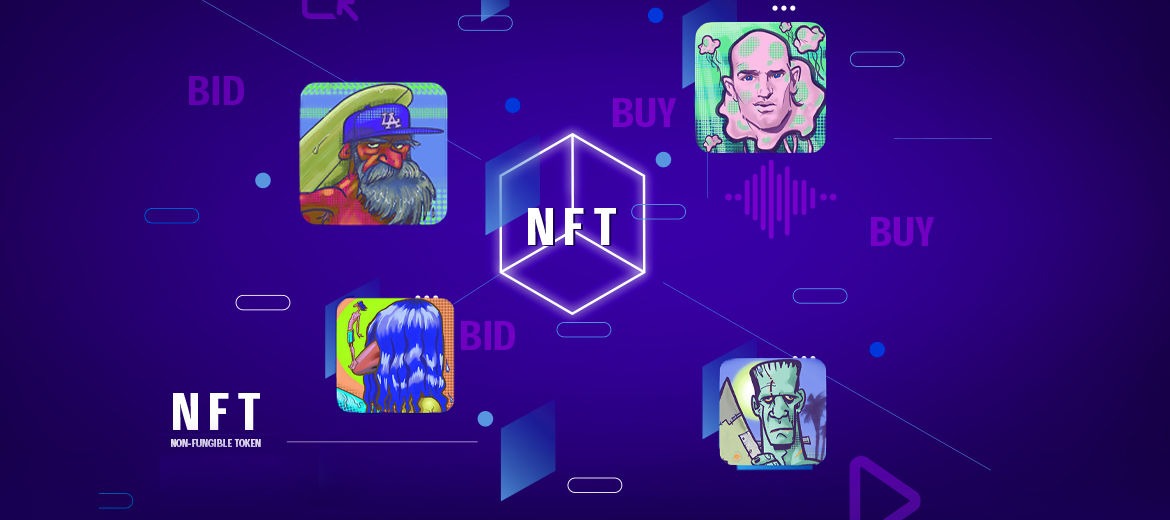The rise of Non-Fungible Tokens (NFTs) has revolutionized the digital art and collectibles market, offering artists and creators new avenues to monetize their work and collectors the opportunity to own unique digital assets. NFT marketplaces serve as platforms where users can buy, sell, and create NFTs, facilitating transactions and fostering a vibrant ecosystem. In this expert guide, we explore the world of NFT marketplaces, examining the key features, popular platforms, and considerations for participants.
Understanding Non-Fungible Tokens
What are NFTs?
Non-Fungible Tokens (NFTs) are unique digital assets that represent ownership or proof of authenticity of a specific item or piece of content, stored on a blockchain. Unlike cryptocurrencies such as Bitcoin or Ethereum, which are fungible and interchangeable, NFTs have distinct properties and cannot be replicated or exchanged on a one-to-one basis. Each NFT is associated with metadata that defines its characteristics, provenance, and ownership history, making it one-of-a-kind and verifiable.
Use Cases for NFTs
NFTs have diverse applications across various industries, including art, gaming, music, collectibles, virtual real estate, and more. Artists can tokenize their artwork as NFTs, enabling them to monetize digital creations and retain ownership rights. In the gaming sector, NFTs represent in-game assets, allowing players to buy, sell, and trade unique items within virtual worlds. Additionally, NFTs can be used for tokenizing real-world assets, fractional ownership, and creating digital identities.
Navigating NFT Marketplaces
Features and Functionality
NFT marketplaces provide users with a platform to discover, buy, and sell NFTs, as well as mint new tokens. These platforms offer a range of features, including search and discovery tools, customizable storefronts, auction capabilities, and integrated wallets for managing digital assets. Some marketplaces specialize in specific categories, such as art, collectibles, or gaming, catering to niche audiences and fostering community engagement.
Popular NFT Marketplaces
Several NFT marketplaces have gained prominence in the crypto space, attracting artists, collectors, and investors from around the world. Platforms like OpenSea, Rarible, and Foundation allow users to mint, buy, and sell NFTs across various categories, offering a diverse selection of digital assets and artwork. Other marketplaces, such as NBA Top Shot and Axie Infinity, focus on specific verticals like sports collectibles or blockchain-based games, catering to niche interests and driving innovation in the space.
Considerations for Participants
When participating in NFT marketplaces, it’s essential to consider various factors to ensure a seamless and secure experience. Participants should assess the reputation and credibility of the marketplace, examining factors such as user reviews, security measures, and platform governance. Additionally, evaluating the cost structure, including fees for minting, listing, and transaction processing, can help users make informed decisions and optimize their returns. Moreover, understanding the rights and licensing terms associated with NFTs is crucial for both creators and buyers, ensuring clarity and transparency in transactions.
Conclusion
The emergence of NFT marketplaces has democratized access to digital art and collectibles, empowering creators to monetize their work and enthusiasts to own unique digital assets. By leveraging blockchain technology, these platforms facilitate transparent and secure transactions, fostering a thriving ecosystem of artists, collectors, and investors. Whether you’re an artist looking to tokenize your creations, a collector seeking rare digital assets, or an investor exploring new opportunities, NFT marketplaces offer endless possibilities for participation and engagement. As the NFT market continues to evolve and innovate, staying informed and adapting to emerging trends is essential for maximizing value and unlocking the full potential of this transformative technology.
